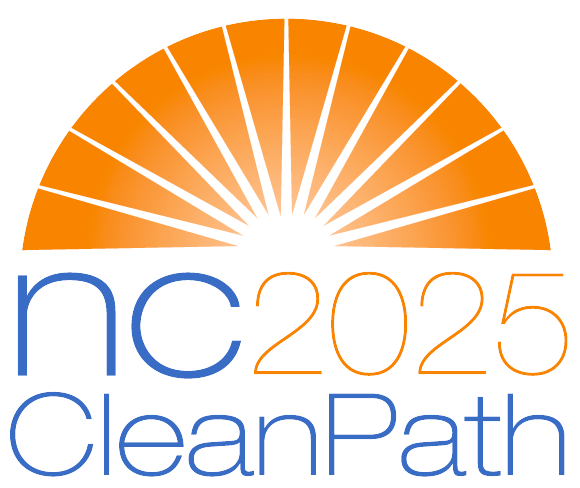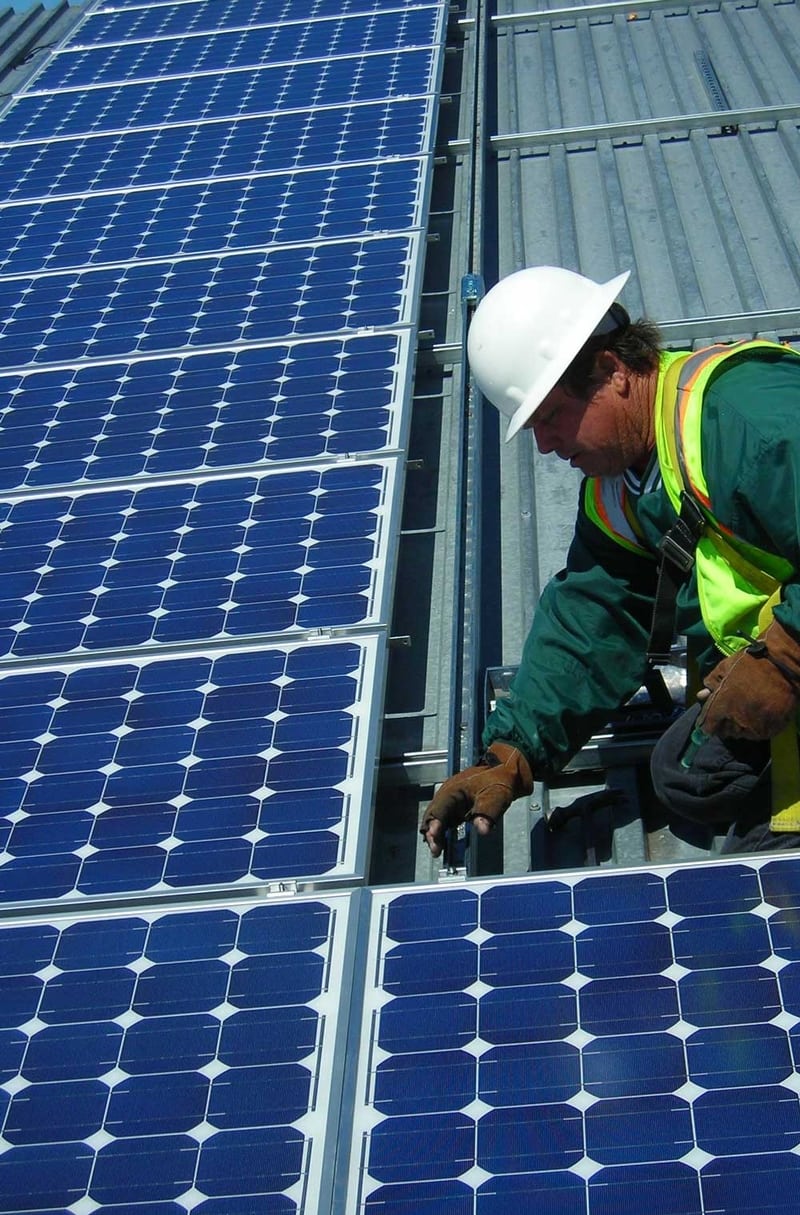Quick Facts:
Clean Path 2025 will save NC billions of dollars Duke Energy plans to spend building unneeded power plants and other outdated infrastructure.
Clean Path 2025 will create thousands of jobs while helping all customers save money.
This strategy can replace all fossil fuel power — rapidly — with proven clean energy, battery storage and energy-saving programs.
Check out NC WARN’s other solar work, including our 2022 Save NC Solar campaign to keep Duke Energy from undermining rooftop solar net metering, our 2014-16 Solarize programs, our Solar Freedom project at Faith Community Church in Greensboro, our Duke Hates Solar campaign and our work with the NC Solar Schools Initiative.
North Carolina Clean Path 2025: Achieving an Economical Clean Energy Future is a 2017 report prepared for NC WARN by engineer Bill Powers. It is a strategy for North Carolina’s electricity supply system showing that local solar combined with battery storage, energy efficiency, energy-balancing programs and on-bill financing can rapidly replace fossil fuels, save tens of billions of dollars and create thousands of jobs across the state.
NC WARN has matched the report with an Action Plan and local governments are working with residents across the state to implement the Clean Path 2025 plan, putting meat on the bones of their recent pledges to help slow the accelerating climate crisis. Contact us to join an Action Team or find out about resources for local governments.

Resources
- Original Report
- 2019 Update
- Other Updates
- Solar & Storage Quick Facts
- 2018 Conference Info & Recording
- Case Study: Minster, Ohio
- Action Plan & Action Team Resources
- Local Government Resources
- Clean Path 2025 Fact Sheet
- Policy Roadblocks
- Storage webinar recording (Aug. 2018)
- Storage webinar slides
- Related news articles
- Frequently Asked Questions
Background
Local governments can directly implement Clean Path programs, but we’re also urging them to press Duke Energy, the cooperatives, municipal utilities and Governor Cooper to join the effort. And we’re reaching out to scientists, civic leaders, news media and the public to foster an open, constructive discussion about moving quickly into the 21st Century on energy and climate.
We believe this report is a first for the nation and we’re urging other states to join the shift to local solar with storage – even as the Koch brothers and many utilities work vigorously to stifle the growth of renewables.
We can and must move quickly. The report shows that North Carolina has twice as much local solar potential as needed to retire all fossil fuel plants, and that local power lines can handle large flows of local solar at little additional cost. The only barrier to adoption of this plan is Duke Energy’s longstanding control over state government and public debate. Author Bill Powers emphasizes that there are no economic or technical barriers.
NC Clean Path 2025 author Bill Powers has over 30 years’ experience in energy and environmental engineering. He wrote the 2012 strategic energy plan, Bay Area Smart Energy 2020, for the San Francisco Bay region, a plan to reduce greenhouse gas emissions from power consumption in the Bay Area region 60% by 2020. Powers has a strong Tar Heel pedigree, having earned a B.S. in mechanical engineering from Duke University and an M.P.H. in environmental sciences from the University of North Carolina at Chapel Hill.
Specifically, NC Clean Path 2025 will:

- Reduce power generated by coal- and natural gas-fired plants 57 percent by 2025.
- Reduce greenhouse gas emissions from electricity generation 100 percent by 2030. All coal-fired plants will be closed and gas-fired plants will be used only for backup supply.
- Maintain the 2016 growth rate, 1,000 megawatts per year, of large-scale solar in North Carolina, but build it on vacant urban and suburban land, and on brownfields.
- Add 2,000 megawatts of solar power each year at homes, businesses, schools, and other buildings – and back it up with cost-effective battery storage, capitalizing on rapid progress by Tesla and other companies.
- Create financing options for local solar power, battery storage, and efficiency upgrades that allow everyone to benefit without financial burden.
- Accelerate energy-saving programs to reduce electricity usage 20 percent by 2025.
- Expand demand response programs and energy efficiency upgrades to reduce peak summer cooling and peak winter heating loads 50 percent by 2025.
- Create 16,000 good jobs across the state in the first three years.
- Save billions more in avoided purchase of coal and natural gas.
Recent News
More Proof that Duke Energy Leaders Hate Renewable Power — NC WARN News Release
New documents show Duke to keep strangling large-scale solar companies; highly touted solar build-out won’t even begin for years – and won’t last long Despite a years-long campaign to greenwash its corporate image by misleading the news media and decision-makers, Duke Energy remains a leading driver of the global climate …
SEE ALL NC CLEAN PATH 2025 POSTSNC WARN Commends Governor for Expanding Criticism of Duke Energy and its Deceptive Gamble on “Hydrogen-Capable” Natural Gas — NC WARN News Release
Group presses Cooper to counter pro-Duke regulators, prevent yet another billion-dollar blunder by the nation’s largest climate-polluting utility Watchdog nonprofit NC WARN today thanked NC Gov. Roy Cooper in an open letter for expanding his recent criticism of Duke Energy’s plans to gamble the state’s climate and economic future on …
SEE ALL NC CLEAN PATH 2025 POSTSYour Voice Matters. Become a Member!
Be part of the climate justice movement in North Carolina.









